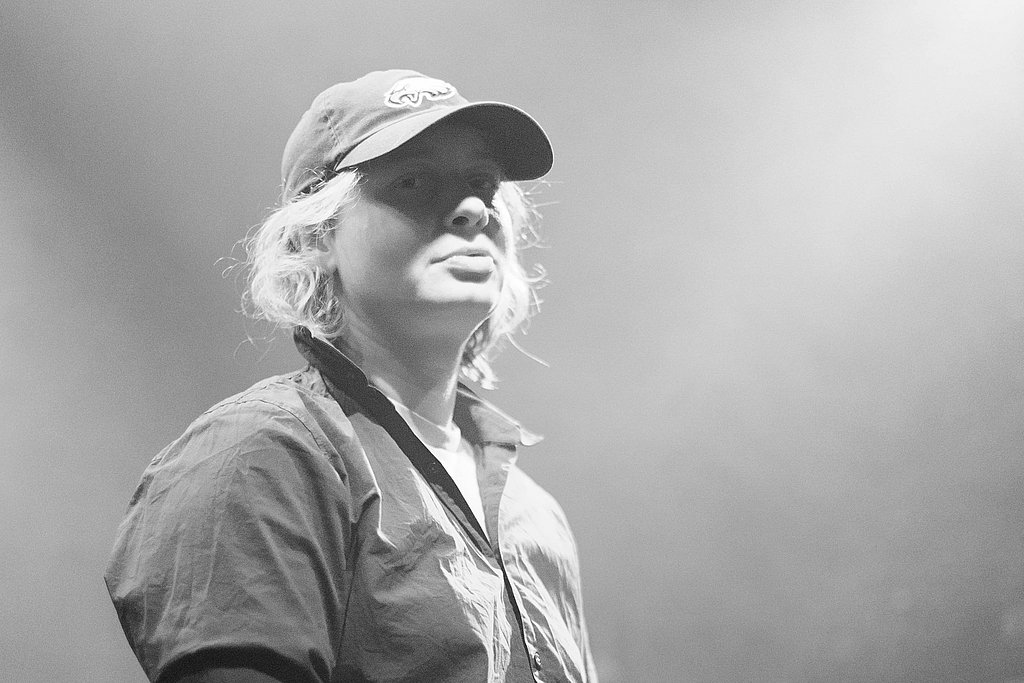Claudia Winkelmann: Dear Lena, with your texts you convey authenticity, tenacity and attitude. These could be excerpts from the university's mission statement. Is that why you decided to study in Hellersdorf?
Lena Stoehr(faktor): No, not really, I only had a limited choice of options. I had a vocational diploma in social work and three universities in Berlin to choose from (Catholic, Protestant and ASH Berlin). I asked around and a lot of people told me that there were a lot of progressive lecturers and students at ASH Berlin. There were also a few people studying there that I already knew. My choice was probably also due to the fact that I knew who I could take a smoke break with :)
What did you study at ASH Berlin?
I studied Social Work in the Bachelor's program and Social Work Practice Research in the Master's program. After about two semesters, I received a scholarship from the Rosa Luxemburg Foundation. That helped me a lot and took the pressure off. I think that saved me, because otherwise I would have quickly panicked about BAföG due to my slowness.
After all these years, what do you remember most about your time at university?
I still remember some of my lecturers very well, for example the Gramsci seminar with Maria Castro Varela and Janek Niggemann and many of the people who gave me food for thought: Mr. Schneider, Ms. Attia, Ms. Walter, Ms. Musfeld, Ms. Beyer, two gender lecturers, Julian and Sandra. And Wolfgang Huber. I'm sure there were a few more. They were great seminars.
Ms Musfeld once noticed that I was overwhelmed by the university organization and offered to have a coffee with her. I didn't do it because I was overwhelmed. But I never forgot the offer because I thought it was the right thing to do.
I always found the journey to Hellersdorf, the difficulty of finding my way around and the homework really bad. Quantitative research methods were also hard. The topic of my final thesis was "Postcolonial theories on vacation trips to former colonies". I was very interested in the topic, but I realized during my Bachelor's thesis that scientific work is not my thing. On a more positive note, there were some people I'm still in contact with today, for example my friend Philip. My recent visit to the University Day was also great. The people were very nice.
What happened after your studies?
I was a social worker at the "ReachIna" girls' district store in Berlin Neukölln for years. After that, I worked at the queer youth center "Q*ube", also in Neukölln. In between, I was self-employed as a rapper. Since corona, that's over, the cultural sector has been destroyed for smaller artists. I often have to deal with sexism. But a big underestimated exclusion factor is probably lookism and the wrong age for edginess and uniqueness. There is a lot of pressure to conform. But I still have a lot of stable supporters.
As a musician, you want to "make the dirt visible". What connections do you see or does social work influence your music and vice versa?
Social work gives me a taste of reality. Unfortunately, I got too much of a taste and got an extreme burnout. The pay is a joke for the emotional strain. I don't believe in capitalism and in social work you are constantly confronted with its effects. It makes sense on a personal level to some extent and it's also fun. I like the clientele, but not the conditions that make people small. I don't want to deal with any more problems from now on, because I have too many of my own ;-)
Where do you draw your creativity and strength as an artist?
I like listening to rap and I'm often angry. I also feel everything very intensely. I draw strength from that. Then I get on the mic and officially take "revenge" :-)
I was able to experience you live at the University Day in November 2023. Your lyrics were a highlight of the entire program, and not just for the students. What advice can you give our students?
Thank you, that's very nice, I enjoyed it too. I would like to tell the students to go their own way and to question everything. I always think it's good to see people and to be radical and warm. Don't be too hard on hard-working people and not too soft on assholes. And retrain for IT or something at some point when you can no longer afford your rent :-) At least until capitalism has been abolished.
Thank you very much for the interview and all the best wishes!
Thanks for the questions. Have a good time!
More from Lena - especially for the ears - here: https://www.lenastoehrfaktor.de/



